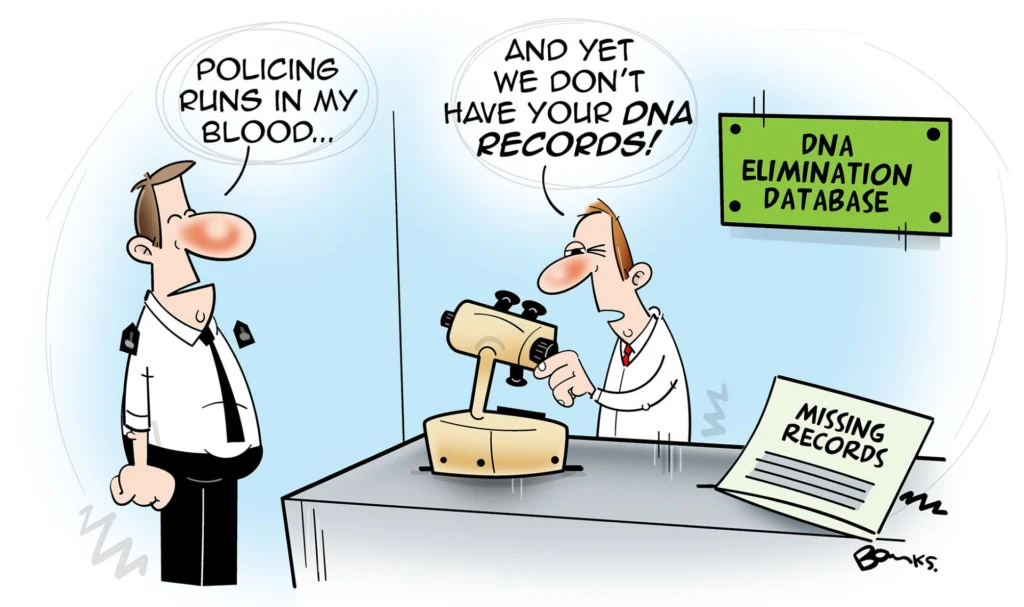Analysis
The importance of video evidence principles for organisations

ADVERTORIAL:By David Spreadborough, Forensic Analyst from Amped Software
Most of you will have an ongoing investigation that utilises video evidence. For many officers, a video may have been one of the first pieces of physical evidence they had to deal with. That digital recording of the shoplifter, with the offence, ‘caught on camera’.
You would think, therefore, that video evidence would be well-researched, with industry standards in place. Standards to support the flow of Digital Multimedia Evidence (DME) through the Criminal Justice System, ensuring the fundamental components of integrity and authenticity are maintained.
Unfortunately, even after nearly 30 years of video being digital data, it is probably one of the most misunderstood forms of evidence. This causes unnecessary challenges for victims of crime, witnesses, investigators, the wrongly accused, and the court systems worldwide.
Video evidence can be very powerful, bringing benefits during all stages of an investigation. However, its true potential is realised only when it’s dealt with as evidence. The moment it’s not handled correctly is when the problems can start.
The many, regional, guidance and best practice documents dilute the important information. Some contain outdated methodologies, some contain conflicting information, whereas others have simply regurgitated older practices, failing to consider the basics of the digital world we now live in.
The main challenge though is not the array of guidance. It is the fact that decision-makers and those with the power to make change, are often unaware that there is a problem to start with.
Awareness allows all opportunities to be explored, to halt mistakes, and to bring more trust in the digital data. But, it has to be a team effort. Departments should not work in silos, but rather establish well-defined responsibilities and regulated ways to share data, ensuring evidential integrity is maintained.
It’s obviously harder to implement a seamless flow of evidence when the responsibility of video evidence is passed to various disconnected departments and organisations. We have to break down the barriers and build bridges, and we can only do this as a collective.
After witnessing many years of video processing errors, the CEO and founder of Amped Software, Martino Jerian, wrote and presented the Video Evidence Principles at the European Parliament earlier this year. If things were going to change, then those at the top need to understand why.

The Video Evidence Principles combine the critical components of most international guidance, including the UK’s Forensic Science Regulator. Divided into two, it first presents the challenges and opportunities to policymakers and stakeholders. Then, the technical overview is written for first responders, investigators, and officers.
You can download the Video Evidence Principles now from here.
In the first section you will learn that video evidence is not as easy as you may have initially believed.
There is a limited connection between the video surveillance industry and the legal systems that have to utilize the recorded data.That data, therefore, is uncontrolled and unregulated. Subsequently, most surveillance systems can utilize some form of proprietary data management. It could just be the timing information or the audio. Yes, you may be able to play the video, but is it playing correctly and is there other important data that the player cannot see or show?
There are even sizeable public place CCTV systems that record their video 100% proprietary, rendering any independent, forensic analysis impossible. This forces you, an investigator of facts, to rely solely on what the manufacturer wants you to see. If they apply sharpening or some color correction, you are viewing a video that is changed from how it was originally recorded.
This fact of allowing changes to video evidence is a core component of the first section. Unknown or uncontrolled changes could not happen with any other form of evidence. From witness statements to traditional forensic evidence such as fibre lifts, fingerprints, and DNA. In digital forensic evidence, the integrity of the presented facts is always one of the first considerations. However, with video evidence, there seems to be some tolerance.
This tolerance is now beginning to cause questions. With the increase in the technicality of video recording and the ease with which it can be captured, changed, transmitted, and stored, it is the responsibility of the legal system to ensure that integrity is easily provable.
The hidden changes are often not considered by those without the necessary competency to identify them. This brings us nicely to the three vital elements that are addressed within the first section: evidence, competency, and tools.

If your evidence does not have the data, either through incorrect acquisition, handling or processing, then no amount of work will recover what has been destroyed.
Without competency, acquisitions are not completed correctly, changing the data right at the start of the evidential chain. Without knowledge, those who are responsible for the storage and processing of the evidence can make incorrect decisions. Finally, without the skills to identify errors, further mistakes will continue during the investigation.
The tools are only as good as the competency of the user and the data that they work with. Without the correct tools, even a competent user is working with one hand tied behind their back.
The technical section looks specifically at competency and tools, as it relates to information that those handling video evidence should know.
Due to differences in training opportunities and internal practices, several overly complicated workflows have developed. Subsequently, many people then seem reluctant to perform valid and perfectly acceptable video restoration, enhancement, or analysis tasks.
Specifically in the UK, this situation leads to the unnecessary outsourcing of many of these tasks. As a consequence, there are further delays and costs incurred, and sometimes even an incorrect outcome is obtained as a result.
For practitioners working with video evidence, the section is split into three parts covering 16 points. All of these are designed for the protection of the evidence, your protection as an investigator, and to protect the investigation itself.
They explain that by evaluating the data, competent technicians, analysts, and investigators can use science to form an objective decision. What follows then will be a repeatable, reproducible, and explainable answer or demonstrative piece of further evidence. By ensuring image integrity and authenticity, presented material can be relied upon.
Subjective processes, and unknown, uncontrolled procedures allow unnecessary questions of the evidence and cause delays and even miscarriages of justice.
Let us end this introduction to the Video Evidence Principles with Martino’s own conclusions:
The first objective of these concepts and principles is to raise awareness about the sensitivity of image and video evidence and give some indication on how to process them in a scientifically correct manner. These principles should be further developed, either independently or by adopting already existing internationally accepted guidelines. Only in this way, we can grant our countries better security, and better justice, and at the same time reduce costs for human resources and issues caused by mismanaged evidence. There are only advantages to working on video evidence in the right way. Only one major thing is needed: a change of mindset. Video evidence is not “just a video”, it’s “evidence” and should be treated as such.
Download the Video Evidence Principles here.
Category: AdvertorialInnovation
Tags: ForensicsFree ArticlesSoftware
Advertisement
Job of the week
Crime Scene Investigator

- The Royal Gibraltar Police
- Gibraltar | New Mole House Police Station
- £38,000, £39,000, £40,000, £41,000, £42,000 per annum.
RGP Police Officers and staff are committed to providing a professional service and our vision of “Delivering a Safer Gibraltar through Excellence in Policing” reinforces this. All Officers and staff are ambassadors for the force and are encouraged to be helpful, polite, approachable and professional. We are all responsible for delivering a professional policing service to all people across Gibraltar. We subscribe to and live by our organisational values and Code of Ethics which sets out both what the public can expect from us and what we should expect from one another.
Read more

